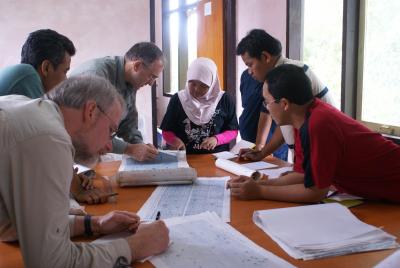
When not responding directly to volcanic activity, VDAP provides assistance building capabilities that enable other countries to manage their own crises. VDAP provides training, infrastructure development, education about hazards, monitoring, and crisis response in high-risk countries. This assistance helps host countries build volcano-monitoring networks, assess hazards, educate public officials, and prepare for future volcanic crises.
Many countries simply lack the resources to educate and train scientists in the highly specialized tasks related to volcano monitoring and interpretation. VDAP champions a multi-pronged approach to bridge this knowledge gap. Travel grants bring scientists from around the world to the annual seven-week training course with the University of Hawaiʻi's Center for the Study of Active Volcanism. USGS staff and university partners serve as instructors and mentors for this unique training program. VDAP also sponsors focused workshops at home and abroad on topics including seismology, volcanic gas emissions, lahar (mudflow) modeling, hazards mapping, volcano deformation, remote sensing, and monitoring of crater lakes. USGS mentors also assist partners in writing and publishing their research so that they become the acknowledged experts at their local volcanoes.